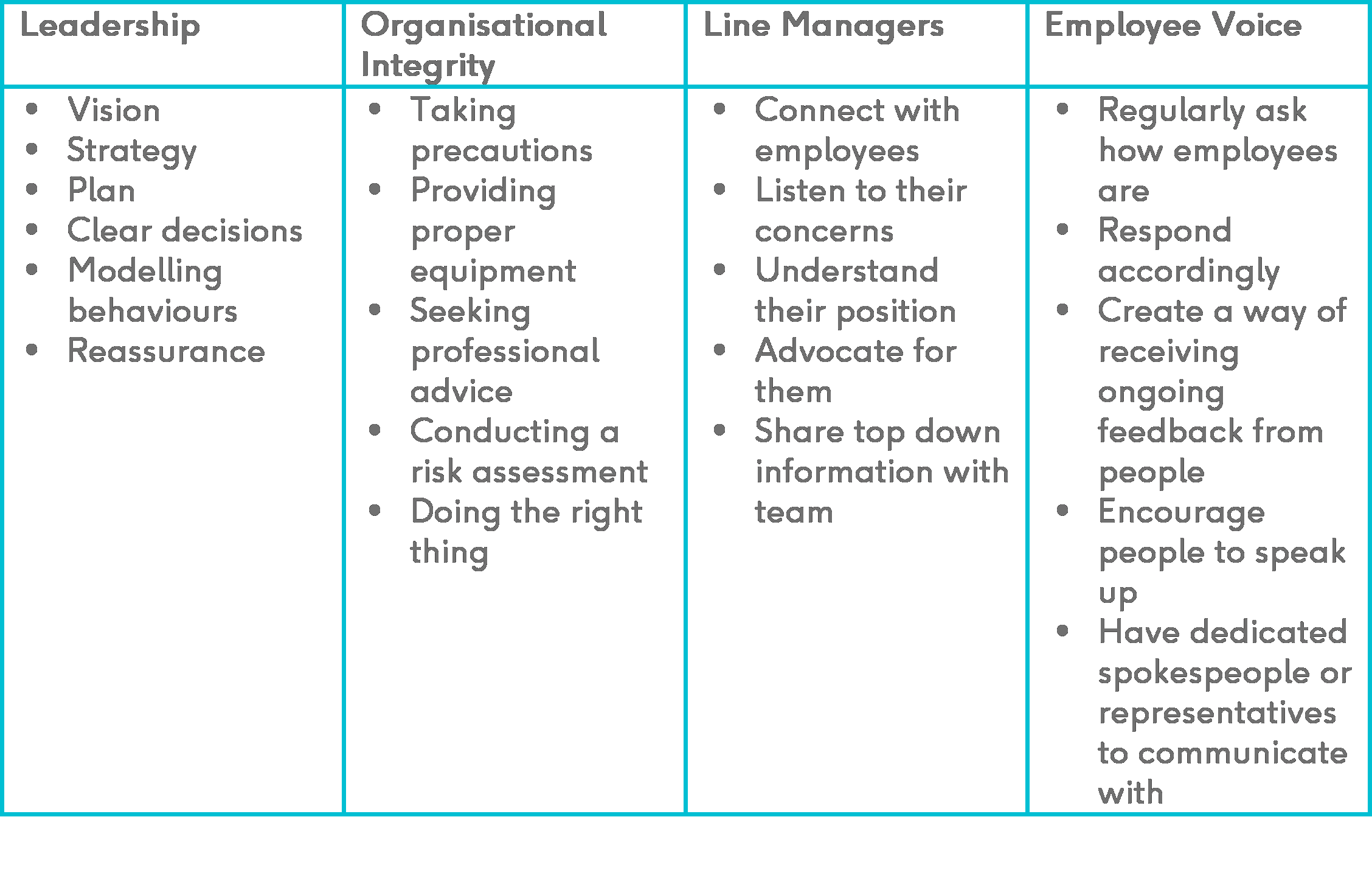

Wed 24 / 06 / 20
Why employee engagement matters
By Claire Carson of
The principle of employee engagement is that there are various factors that, when they are all in place, employees experience high levels of job satisfaction and their performance and commitment increases. Employees are happier, more motivated, go the extra mile and are more productive.
The employer clearly benefits hugely from highly engaged employees and it is the employer that must initiate the focus on engagement. It is very difficult for an employee to increase their own engagement from the bottom upwards. Ideally a senior stakeholder in the organisation will take the lead and use their position to gain support and maintain momentum.
So how does it work in practice? Well, there many versions and interpretations. I like to use the Ulrich* model as a starting point. Ulrich says there are four enablers of engagement: Leadership, Organisational Integrity, Line Management and Employee Voice. These factors are connected and won’t work singularly. Rather, the key elements must be linked together and work in harmony to achieve results.
A facilitated group activity where employees discuss a subject and consider how to proceed can work well. For example, many employers are considering the return to the workplace now and a discussion about how to increase engagement at such a difficult time, may generate ideas such as:

Involving people in understanding the benefits of employee engagement and helping them translate it from a theoretical model to a set of practical actions can get the engagement ball rolling. Such an exercise could even appear under each of the headings above.
A group activity is a great starter and needs to be followed up so that the ideas generated are put in to practice. The key stakeholders need to maintain the pace and keep each other accountable to reap the rewards of a highly engaged workforce. Employee engagement is an ongoing set of behaviours, not a one-time fix. Having someone to schedule regular activities will send the message that you, as an employer, are committed to employee engagement and that you consider it to be a priority.
For employee engagement to increase there needs to be a key driver to dedicate time to invest in engagement related activities. Employee engagement should be firmly on the agenda at a high level and everyone should know what it is and how they can each play a part. An initial measure of the current levels of engagement is a great way to know where to start and it provides a marker to measure improvements against.
Ongoing reviews are also essential to ensure that the embedded engagement is dynamic enough to move with the business. Any changes must include the impact on engagement and consider how to incorporate ways of maintaining engagement; it should be treated as a fluid, evolving practice, not a static policy.
*Professor Dave Ulrich
What is the level of engagement like in your organisation?
What more could you do?
What do your people need more of?

Claire Carson, HR Consultant at Cognitive Law, is exclusively offering Brighton Chamber members a free engagement survey for your business. The anonymous survey will be sent to your employees and the results collated and interpreted to measure the current level of employee engagement in your organisation. Claire will also make recommendations on how to improve engagement levels.
You can access all the details of the offer in the members hour area of the Chamber website, or contact Claire directly on 01273 284 191 or claire.carson@cognitivelaw.co.uk.
If you want to contribute to the Chamber blog, contact us on hannah@brightonchamber.co.uk



